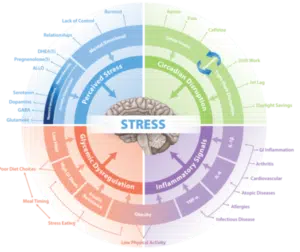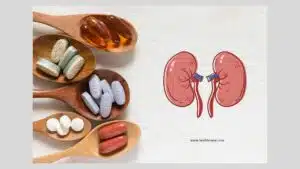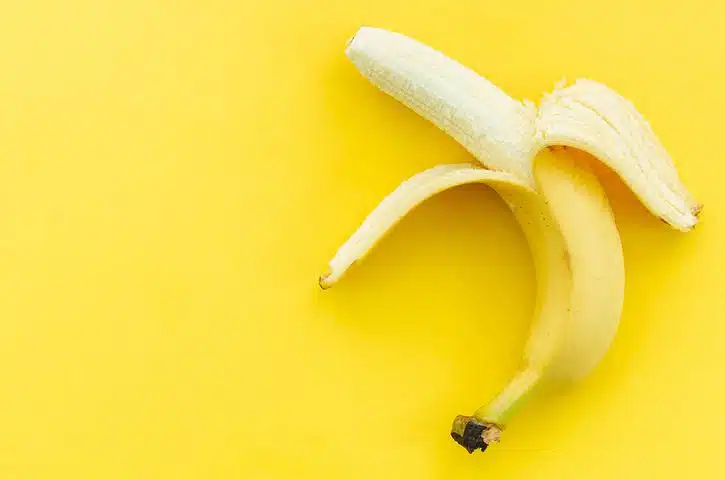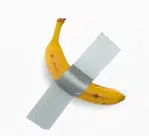Eat one of these a day… any questions?
Ok, if you are a nurse or a dietitian, you are familiar with this practice of telling patients with low Potassium to start eating a banana a day from now until well… eternity. If you are a renal dietitian, you can add this to the list of challenges we have in counseling patients due to hyperkalemia in CKD. Check out hyperkalemia vs hypokalemia in normal and CKD patients.
First, let’s talk about why having normal Potassium levels is important. Both low and high Potassium (hypokalemia vs hyperkalemia), although rare, can have some pretty serious consequences.
The normal range for Potassium is 3.5-5.0 mEq/L
(pre-dialysis: 3.5-6.0 mEq/L) levels
Hyperkalemia vs Hypokalemia Symptoms –
So, you have seen in the above table that one of the causes of hyperkalemia or high potassium is CKD itself so there is a concern of hyperkalemia in CKD patients.
Symptoms of low potassium (hypokalemia) are like those of high Potassium (hyperkalemia) and can include:
- Tiredness/weakness
- Muscle cramps/paralysis
- Changes in blood pressure and heart rhythm
- Breathing problems
- Tingling/numbness
Both low and high potassium, although rare, can have some pretty serious consequences
Transient hypokalemia can occur in both pre-dialysis and dialysis patients. It can also occur in people without a history of kidney disease for different reasons. Let’s break that down:
People with CKD (pre-dialysis) and Hypokalemia –
- Low Potassium can be caused by certain high blood pressure medications such as diuretics (water pills).
- Water pills are also prescribed to people with heart failure to remove fluid build-up around the heart and lungs.
CKD People on dialysis and Hypokalemia –
- Most people with end-stage renal disease on dialysis have high blood pressure and therefore could be prescribed diuretics.
- People who get frequent dialysis (5 or more days a week) are at a greater risk of hypokalemia due to the filtration process.
People who do NOT have CKD and Hypokalemia –
- Low Potassium or hypokalemia can occur in people who lose large amounts of sweat (i.e. athletes). Low potassium can also happen to people who have significant gastrointestinal (GI) losses due to chronic diarrhea (ie. Crohn’s disease, short bowel syndrome)
- Diuretics are typically prescribed as the first line of defense against elevated blood pressure levels. Increased urination can cause high losses of Potassium. (Normal functioning kidneys should slow the release of Potassium to keep blood levels normal)
One problem with “One banana a day” is that patients often get tired of eating the same thing every day. After about a week or two, it can get old and therefore is not sustainable.
Hyperkalemia in CKD
Another issue is that patients with CKD or renal insufficiency who are treated for low Potassium may be susceptible to high Potassium leading to hyperkalemia in CKD patients.
If the underlying reason for the low Potassium is corrected, a banana a day could then possibly cause high Potassium levels if eaten with a regularly balanced diet.
See the example below:
This average meal plan for a 2000-calorie diet contains 2749 mg Potassium. The average kidney/dialysis patient has a Potassium restriction of somewhere between 2000 and 3000 mg depending on height/weight and medical condition.
Patients on peritoneal dialysis or nocturnal dialysis usually do not have a low Potassium restriction. These CKD patients, however, can still experience high Potassium levels or hyperkalemia due to dietary excess, certain medications, or insufficient dialysis.
This makes it important for the renal dietitian to monitor Potassium levels and dietary sources of Potassium to avoid high Potassium or hyperkalemia in CKD patients.
Foods with high vs low potassium to consume in hypokalemia vs hyperkalemia:
Here are some popular fruits and vegetables that are high in Potassium and may need to be avoided with CKD to prevent hyperkalemia in CKD:
The average kidney/dialysis patient has a daily Potassium restriction of somewhere between 2000 and 3000 mg.
There are many foods lower in Potassium that a CKD patient can safely choose from in moderation.
See the list below of some common ones:
All fruits and vegetables contain Potassium so when eaten in excess amounts, a low Potassium food can add too much your Potassium intake. High fiber cereals and grains, milk and milk products (cheese), nuts, seeds and chocolate are other foods containing high amounts of Potassium. Salt substitutes can also contain Potassium Chloride and should be limited or avoided in patients with CKD.
For advanced CKD and dialysis patients, its important to get a balanced diet including both fruits and vegetables at each meal and choosing low Potassium foods to prevent hyperkalemia in CKD.
There is growing evidence that a plant-based diet can slow the progression of CKD by reducing individual risk factors like type 2 diabetes and hypertension which are the top two causes of CKD. People on dialysis can also benefit and thrive from a plant-based diet under the direction of a renal dietitian.
People on dialysis can benefit and thrive from a plant-based diet under the direction of a renal dietitian.
According to NHANES 2009-2010, the average U.S. adult consumes around 2640 mg of Potassium daily. The Institute of Health, however, recommends a minimum of 4700 mg daily to maintain and promote cardiovascular health. The best way to increase potassium in your diet is to add more plant-based foods daily.
If you already have CKD, a health coach and dietitian can help you develop a plan that is best for you for a lifetime of good health.
References:
- https://www.ars.usda.gov/ARSUserFiles/80400530/pdf/DBrief/10_potassium_intake_0910.pdf
- https://nutritiondata.self.com
- https://www.kidney.org/atoz/content/plant-based

Cheryl Robinson
Related Posts

Renal Dietitian Answers Real Questions Of Dialysis Patients







